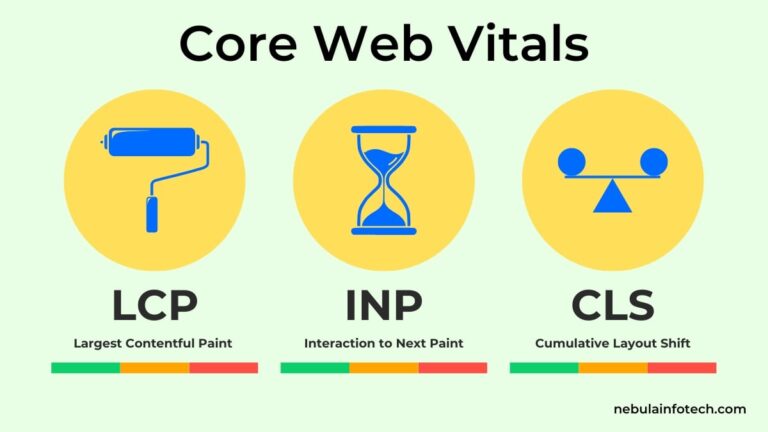People planning to develop an online brand presence often face the dilemma- whether to go for a mobile website, engage in a downloadable mobile app, or do both. Apps and mobile websites look very much alike in their basic overview. Yet, they serve different purposes, and knowing their functionality would assist you to make the right decision. So, before you make a choice between a mobile app or a mobile-friendly responsive website, make a list of all the essential components like desired features, intended purpose, budget, and target audiences.
Access
Users can access both mobile apps and mobile websites on their smart devices, but the difference is that a mobile app needs to be downloaded while a mobile website can be visited just by typing the right URL.
A mobile website is just like a regular website that you see on a computer device. It is made up of interlinked HTML pages which anyone can access on the net. However, a mobile website is developed for the smaller screen of a handheld device and may contain touch-screen features. Such responsive designs are favored by mobile-friendly devices as they give freedom to scale the size as per device specifications. They can be used to include videos and images, data, and text content, besides accessing mobile-specific features like location-based mapping, using device audio or video, or dial-a-phone service.
Contrarily, apps are downloadable applications that users need to access and download from Apple’s App Store, Blackberry App World, or Play Store and cannot be opened directly on a browser. Once downloaded, it may or may not require an internet connection to operate.
End Goal
One of the main deciding factors between a mobile app and a mobile website is your end goal. For example, if you want to share your brand information and content with a wide number of users, then your best choice would be a mobile website. However, if you decide to give special deals and information to your loyal customers then developing a mobile app would be a better option. In most cases, the decision to develop a mobile app is taken after brands already have a mobile website in place. A mobile website gives them access to a huge customer network, and once this network is established, they want to retain their customers and make them keep visiting by giving them access to special features through mobile apps.
Benefits of Mobile Websites
Public Communication and Marketing
The mobile website is basically used to engage in public communications or marketing approaches as it gives the advantage of higher access to the target audience in a compatible and cost-effective framework.
No Need for Downloads
An interactive mobile website can be accessed immediately through a browser across a wide category of hand-held devices (Blackberry, Android, or iPhone). They are hassle-free as they are not required to be downloaded before the content could be viewed and accessed.
Cost-Effective
The greatest benefit of a mobile or responsive website is its cost-effective design and its capacity to be viewed from any type of hand-held device. You can easily integrate URLs of mobile websites inside other mobile technologies like Near Field Communication (NFC), QR Codes, or SMS. Contrarily, in the case of the mobile app, a separate version is needed for different types of devices. It increases the cost and time of development.
Flexibility in Updates
Lastly, the mobile website gives the freedom of flexibility with regards to the update and up-gradation of content. This is not possible in the mobile app. Anytime you decide to modify, add, or delete content or a website design, you can do so easily and publish the change instantaneously. On the other hand, in a mobile app, updates are dependent on the user’s choice. Hence, the mobile app’s content and features would remain unchanged unless the user decides to accept the upgradation.
Greater Visibility
An interactive website offers you greater visibility than a mobile app. The website pages could be found in search results and industry-centered directories. Hence, finding your site becomes easier for the users. Further, regular visitors of your website, get redirected to the mobile set when they use a handheld device via the device-detection feature. Contrarily, the apps’ visibility is limited to the manufacturer app stores and can only be found in the user visits the store in search of your app or similar apps.
Sharing
If users like your website, then they can easily share the URL of your mobile website with their friends and acquaintances through the link-sharing feature. The link could be posted on Twitter, Facebook, WhatsApp, email, or other means. This sharing feature is unavailable in mobile apps.
Wider Reach
The link-sharing facility provides mobile websites a wider reach among consumers. Moreover, their ability to appear in search results, makes them more visible and gives them the power to reach a greater number of consumers. Since mobile apps lack all these features, they lag behind in their reach.
Easily and Always Available
The life of a mobile app is dependent on the whim of the user. According to research, on average, users tend to delete an app within thirty days. There are always new apps being developed and available in the market, and with limited space on the handheld device, older apps are permanently deleted to make room for new apps. Hence, if your mobile app is not truly amazing and filled with several awesome features, chances are that they would be deleted within a very short period. However, mobile websites do not take any space and remain just a click away. Consequently, anytime the user wants to visit your site, they can easily do so through the handheld device.
Ongoing Expense
Your expense doesn’t end when you develop your mobile website or app but continues to occur as long as your website or app is active. Apps require greater ongoing expense than mobile websites in the form of constant developments, compatibility concerns, testing, and upgrades
Benefits of Mobile Apps
Even though there are several obvious advantages of mobile websites, many developers still prefer mobile apps. In fact, just as mobile websites have their sets of benefits, similarly, mobile apps have many attractive features that make them suitable in several instances.
Gaming or Interactive Feature
If you want to add a gaming or interactive feature, then it can only be possible in a mobile app. The apps allow you to add several features to make the game highly interactive and engaging which is not possible on a mobile website.
Personalization
Apps allow you to include personalized features as per the user’s preferences, which is not possible in mobile websites. An example of this is an online banking app or social media app like Facebook where everything is shown as per the user’s choice and saves time in logging in and off like in websites. Similarly, apps can store basic credentials like name, gender, and other information and help the user in personalized interaction or activities.
Data Usage
If you are planning to establish a data-based application, then apps give you greater freedom and flexibility to design the right platform. A scientific or financial app allows you to engage in visualization reporting, do complex calculations, and manipulate the data in any way that you like.
Requirement of Native Functionality
Although there have been impressive advancements in mobile web browsers with features like GPS, SMS, and click-to-call, mobile apps definitely give you an advantage with their native functionality. With the help of apps, you can engage the users’ handheld devices to access the camera and other tools for superior delivery of functionality.
Push Notifications
One of the biggest benefits of apps is their inherent ability to send push notifications. You can send direct messages to users regarding upcoming deals and other notifications once they have downloaded your app onto their devices. However, push notifications are also dependent on users’ choice and you can only send them if they have permitted the app for push notifications in their settings. Moreover, browsers are also upgrading to serve several app-related features like push notifications where web owners can send notifications to users who have opted for desktop or handheld device notifications.
No Need for Internet
Apps can be developed to function without the need for an internet-based service. The data can be stored locally and uploaded when the internet connection is available. Hence, they can be accessed from anywhere on any device and can run even in places with poor internet connectivity. On the other hand, mobile websites do need internet connections and cannot open in their absence.
Bottom Line
Building an app is definitely a costly affair in comparison to a mobile website and so if you are looking for basic features then investing in the latter would be beneficial. However, if you are planning to develop special features which would require handheld devices’ support and built-in applications then you can invest in building an app.
Conclusion
With an increase in the popularity of smart devices, developers find themselves in the dilemma of whether to build a mobile app or website. For brands with marketing-driven goals, easy sharing features, and better visibility, opt for a mobile website. However, if you want to deliver a superior interactive experience that requires the use of the end user’s handheld device’s tools and storage, then the app is your better choice.
Still keep in mind that mobile websites and native apps are complementary to each other and if you have the time, money, and resources then you can develop both of them.
I am Sunil Tarwara, a seasoned IT professional with over 13 years of hands-on experience in Website Development and Digital Marketing. With a deep understanding of the challenges faced by businesses, I have been trusted by hundreds of clients to achieve their digital goals. I have Master’s degree in Information Technology.
Apart from websites, I like hill stations.




